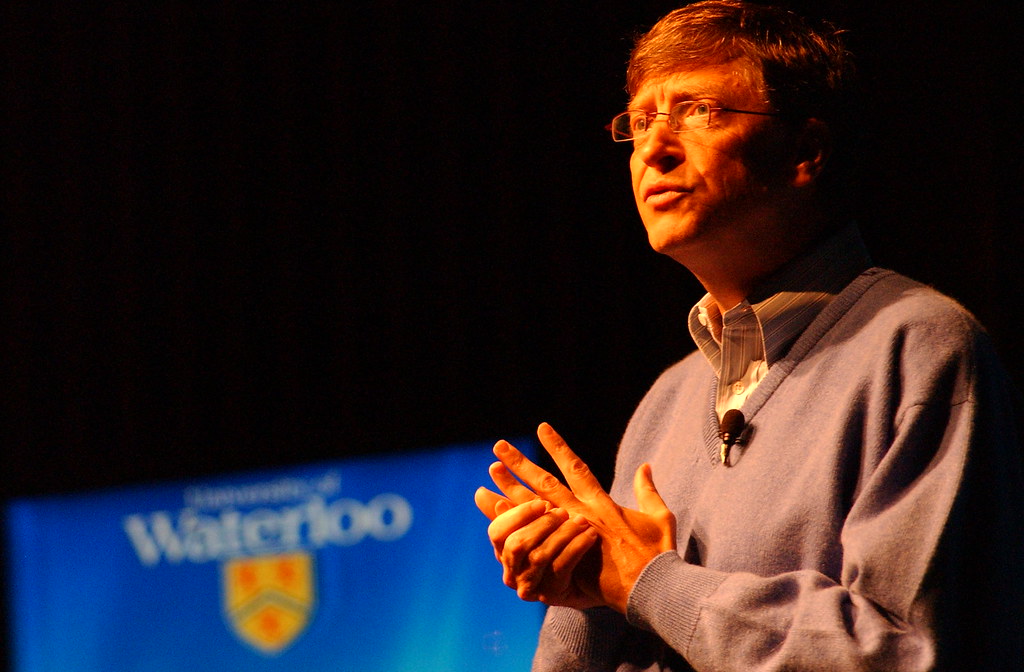Bill Gates predicts AI workweek could reduce to 2-3 days, revolutionizing work culture. Shorter hours boost productivity and lower stress levels globally.

Caption:Bill Gates discussing AI impact on workweek and pay.
The Highlights:
- Bill Gates predicts that artificial intelligence (AI) advancements could lead to a two or three-day workweek within the next decade, questioning the future of work during an interview on The Tonight Show with Jimmy Fallon.
- A move towards a shorter workweek could have significant benefits for employees worldwide, including improved productivity and reduced stress levels, as seen in studies where a four-day workweek led to increased efficiency and decreased burnout.
- While some leaders like JPMorgan CEO Jamie Dimon are hesitant about AI’s impact on work culture, others like Gates envision AI transforming industries such as healthcare and education over the next decade, making certain jobs obsolete while enhancing productivity in other areas.
- Visionaries like Bill Gates and Elon Musk foresee a future where AI dominates the workforce, potentially leading to universal high income models to support individuals in an AI-driven world. As technology disrupts traditional industries, society may need to redefine the concept of work and how people utilize their newfound free time.
Bill Gates believes artificial intelligence (AI) could shrink the workweek to just two or three days within the next decade.
Trending :AI workweek ,AI voice assistant ,Windows 11 preview ,cybersecurity awareness
Bill Gates Predicts AI Workweek to Shrink to 2 Days, Potentially Impacting Pay
Renowned tech mogul Bill Gates predicts that artificial intelligence (AI) could revolutionize the workweek, potentially reducing it to just two or three days within the next decade. Speaking on The Tonight Show with Jimmy Fallon, Gates questioned the future of work and proposed a shorter workweek as AI progresses rapidly.
Gates’ bold prediction is based on AI’s advancements rendering human labor unnecessary for many tasks. This shift could have a significant impact globally, especially as many employees already face burnout and exhaustion.
Studies show that transitioning from a five-day to a four-day workweek can boost productivity and reduce stress levels.
While some leaders like JPMorgan CEO Jamie Dimon are cautious about embracing shorter workweeks despite acknowledging AI’s potential impact, others like Tokyo’s Metropolitan Government are already experimenting with reduced working hours. Gates highlighted healthcare and education as fields most likely to be transformed by AI in the coming years.
The concept of an AI-driven workforce isn’t exclusive to Gates; Elon Musk also envisions a future where traditional jobs may become obsolete due to AI advancements. As society navigates this technological shift, questions arise about how people will spend their newfound free time if most of their work is automated by AI.
Gates’ insights hold weight given his influential role in shaping the modern tech landscape. As industries evolve due to disruptive technologies like AI, society may need to redefine the meaning of work and how individuals allocate their time in this changing landscape. The prospect of a drastically shortened workweek raises intriguing possibilities for how people will choose to utilize their extra time in an increasingly automated world.
Also Read:cybersecurity awareness ,Submarine cable dominance ,Collaborative creativity ,AI model optimization
Conclusion:
- Bill Gates predicts that artificial intelligence (AI) advancements could lead to a two or three-day workweek within the next decade, questioning the future of traditional work culture.
- A shorter workweek, as suggested by Gates, could improve productivity and reduce burnout among employees globally, with studies showing positive impacts on efficiency and stress levels.
- As AI continues to evolve rapidly, certain professions like healthcare and education are at higher risk of automation. Leaders like Elon Musk also foresee a future where AI dominates most tasks, prompting a need for society to redefine the concept of work and leisure time.
Resources:
Bill Gates’ official blog, Microsoft’s official website, JPMorgan’s official website, Elon Musk’s TED Talk on AI and its impact on jobs
Topics : Google,Chromebook, AI, ChatGPT






